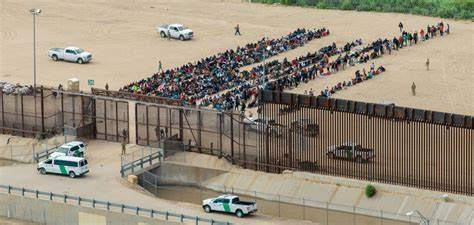We have covered it for years: the United Nations Global Compact for Safe, Orderly, and Regular Migration, commonly known as the UN Compact for Migration, is a non-binding agreement that seeks to address various aspects of global migration. Signed in December 2018, it aims to improve international cooperation on migration issues, ensuring that migration is managed humanely, legally, and organized. The Compact is not legally binding despite fears that it could impose obligations on participating countries. It does not compel nations to change their immigration laws or open their borders.
The agreement is non-binding- meaning it is not a law, according to UN documentation:
“The United Nations General Assembly officially endorsed the Global Compact for Safe, Orderly and Regular Migration on Wednesday, a non-binding agreement adopted in Marrakech on 10 December by 164 Member States, and described by UN chief António Guterres as a “roadmap to prevent suffering and chaos”.
Here is our database: UN Global Compact
President Donald Trump withdrew the United States from the Compact, citing concerns about national sovereignty and potential pressures to conform to international migration standards. His administration argued that the Compact could undermine the U.S.’s ability to enforce its immigration laws and secure its borders independently. Trump’s exit was part of a broader approach to tightening U.S. immigration policy and prioritizing national interests over global agreements.
Flashback to Trump’s Travel ban:
Upon taking office, President Joe Biden re-engaged with the Compact, signaling a shift toward more multilateral approaches to migration issues. While this move sparked concern among some conservatives, Biden’s administration emphasized that the Compact remains non-binding and does not obligate the U.S. to alter its immigration laws or open its borders. The U.S. retains the right to set its own migration policies, consistent with its national security and economic interests.
Critics of the Compact argue that while it does not have legal force, it could still influence future U.S. policy by setting a framework that encourages more open migration. Supporters, however, view it as a necessary step to address global migration challenges collaboratively without sacrificing national sovereignty.
Debate Fact Check- TRUMP was right.
